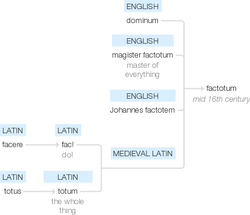Apr 21, 2024
Building a Better Vocabulary
Five Principles for Learning Vocabulary.
1. Definitions
2. Context
3. Connections
4. Morphology/etymology
5. Sematic chunking
Definitions:
Focus on rich meanings, not just dictionary definitions.
Factotum-
Someone hired to to a variety of jobs (Jack of all trades)
Put it into context:
Tessa the office factotum, does the billing, answers the phones, fills in in the PR department and she even know how to bake a mean blueberry scone- she's indispensable.
Make connections to the word.
Let's think of some examples of factotums in our own lives.
Etymology-
the study of the origin of words and the way in which their meanings have changed throughout history.
Morphology
is the study of words and their parts. Morphemes, like prefixes, suffixes and base words, are defined as the smallest meaningful units of meaning.
Myocarditis
Myo- pertaining to muscle
Cardi- pertaining to the heart
itis- inflammation of
Myocarditis- inflamed heart muscle

Semantic chunking
involves taking the known word, and comparing the similarity of all similar words with each other, and then grouping these words together in memory.
This can be done in several ways: by definition, by Etymology, or by category.
Factotum
FAC- do or make
FACtory- makes things
ManuFACture- made by man
FACilitate- to make easier.
BeneFACtor. a person who helps people or institutions
FACt- made' or 'done true
Totum- all, the whole
TOTal- constituting the full quantity or extent
TOTalitarian-characterized by a government in which the political authority exercises absolute and centralized control
TOTality- the state of being total and complete
By undefined
11 notes ・ 21 views
English
Upper Intermediate